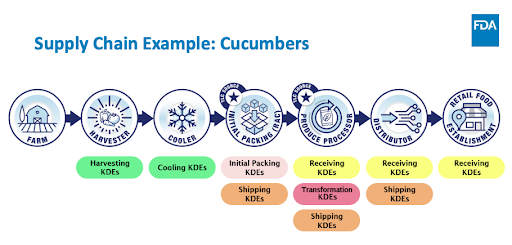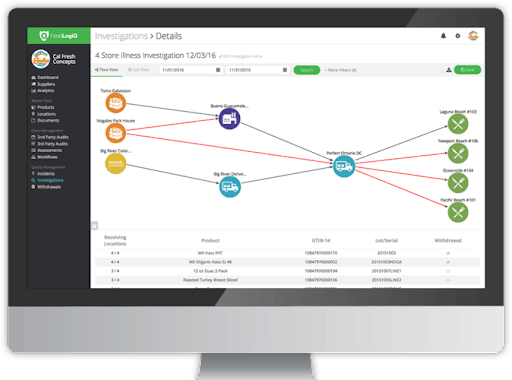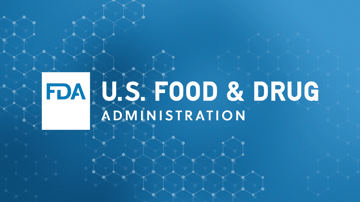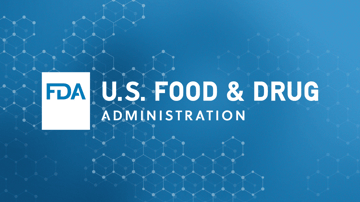The Final Rule for Section 204 Is Here!
“FoodLogiQ commends the FDA for their tireless efforts and rigor in finalizing FSMA 204. This groundbreaking rule will truly help the food industry bend the curve of foodborne illness. FoodLogiQ looks forward to participating in the work ahead to achieve this vision of a safer, more traceable food system. Working together, we can move the food industry forward with the New Era of Smarter Food Safety, putting in place more effective, modern approaches to food traceability, and advance the use of tech-enabled solutions.”
Julie McGill, Vice President of Supply Chain Strategy & Insights
Built on a Strong Foundation: FSMA
FSMA 204 establishes traceability recordkeeping requirements for designated foods on the FDA’s Food Traceability List (FTL). This groundbreaking and ambitious final rule is built upon the foundation of the Food Safety Modernization Act (FSMA), with Section 204 requiring the FDA to designate foods for which additional recordkeeping requirements are appropriate and necessary to protect public health. The focus of FSMA is to transform our nation’s food safety system by shifting the focus from reacting to foodborne illness to preventing it.
As an outcome of FSMA, those who grow, produce, pack, hold, import and transport foods in the United States have incorporated key rules into their operations that provide risk-preventive measures that reduce the risk of contamination. The result is safer domestic and imported foods. But there is still more to do.
This progress hasn’t come without its challenges as food production is constantly evolving. We all have a hand in ensuring that the right measures, processes and systems are in place to handle today’s global food system complexities. Traceability and supply chain visibility is the next logical step.
Next Up: Enhanced Traceability Recordkeeping

There were several differences between the proposed and the final rule for FSMA 204. Here are a few key changes and additions:
- Compliance date: January 20, 2026
- CTE Changes: There are several new CTEs that have been added to the final rule
- Harvesting: applies to farms and farm mixed-type facilities and means activities that are traditionally performed on farms for the purpose of removing raw agricultural commodities (RACs) from the place they are grown or raised and preparing them for use as food.
- Cooling: active temperature reduction of a raw agricultural commodity (RAC) using hydrocooling, icing (except icing of seafood), forced air cooling, vacuum cooling, or a similar process.
- Initial Packing: packing a raw agricultural commodity (RAC), other than a food obtained from a fishing vessel, for the first time.
- First Land-Based Receiver: the person taking possession of a food for the first time on land directly from a fishing vessel.
- Shipping: an event in a food’s supply chain in which a food is arranged for transport (e.g., by truck or ship) from one location to another location. Does not include the sale or shipment of a food directly to a consumer or the donation of surplus food. Shipping does include sending an intracompany shipment of food from one location at a particular street address of a firm to another location at a different street address of the firm.
- Receiving: an event in a food’s supply chain in which a food is received by someone other than a consumer after being transported (e.g., by truck or ship) from another location. Receiving includes receipt of an intracompany shipment of food from one location at a particular street address of a firm to another location of the firm at a different street address.
- Transformation: an event in a food’s supply chain that involves manufacturing/processing or changing a food (e.g., by commingling, repacking, or relabeling) or its packaging or packing, when the output is a food on the Food Traceability List (FTL). Transformation does not include the initial packing of a food or activities preceding that event (e.g., harvesting, cooling).
- Traceability Plan: If you are subject to the requirements of the final rule, you must establish and maintain a traceability plan containing the following information:
- A description of the procedures you use to maintain the records you are required to keep under this rule, including the format and location of these records.
- A description of the procedures you use to identify foods on the Food Traceability List that you manufacture, process, pack, or hold;
- A description of how you assign traceability lot codes to foods on the Food Traceability List, if applicable;
- A statement identifying a point of contact for questions regarding your traceability plan and records; and
- If you grow or raise a food on the Food Traceability List (other than eggs), a farm map showing the areas in which you grow or raise such foods.
- The farm map must show the location and name of each field (or other growing area) in which you grow a food on the Food Traceability List, including geographic coordinates and any other information needed to identify the location of each field or growing area.
- For aquaculture farms, the farm map instead must show the location and name of each container (e.g., pond, pool, tank, cage) in which you raise seafood on the Food Traceability List, including geographic coordinates and any other information needed to identify the location of each container.
- Data Collection, Storage and Sharing:
- Maintenance of records as original paper or electronic records, or true copies
- Provide requested records to the FDA within 24 hours of a request (or within a reasonable time to which the FDA has agreed)
- Provide records in an electronic sortable spreadsheet when necessary to assist the FDA during an outbreak, recall or other threat to public health.
- Records must be maintained for 24 months (2 years)
The FDA has added a wealth of information in their announcement and on the FSMA 204 website. The “unpublished” version of the final rule is available on the Federal Register. The page will be updated in its final format on November 21, 2022.
Building Your Roadmap for FSMA 204 with FoodLogiQ
In order for food companies to be successful in their FSMA 204 journey, we recognize that:
- Tech-Enabled traceability is essential for competitive food businesses and provides business value beyond compliance and consumer protection
- Companies are at risk if they do not understand their role and approach to capturing and sharing enhanced traceability data for high-risk foods
- The traceability timelines are feasible with aggressive action on the planning and development of digital traceability programs
- Advanced traceability record keeping is here to stay, this is only the beginning
FoodLogiQ has been an active member of this journey since the beginning. Our teams helped shape policy at the national level, including participating in the FDA’s traceability pilots that were implemented as part of FSMA Section 204. We have worked hand-in-hand with the food industry’s leading innovators to develop our traceability and food transparency solutions.
We support some of the largest foodservice operators, food manufacturers and grocers in the world. This provides us with a unique perspective regarding today’s challenges and future opportunities facing food industry partners when implementing traceability programs.
Taking a new approach to food safety, leveraging technology and other tools to create a safer and more digital, traceable food system can be achieved. We are doing this today at FoodLogiQ, with our cloud-based Track + Trace platform, which is built on a foundation of GS1 Standards, utilizing Key Data Elements (KDEs) and Critical Tracking Events (CTEs) to support lot-level traceability.

We are the leading industry experts in tech-enabled food traceability and your first choice for FSMA 204 compliance support. Contact the FoodLogiQ team at info@trustwell.com or request time with one of our experts to discuss key components of the FSMA 204 rule and how your brand can strategically prepare for the regulation.
Other posts you might be interested in
View All Posts
Food Safety
5 min read
| September 7, 2022
COUNTDOWN TO FSMA 204: Final Rule Will Be Here In 2 Months
Read More
Traceability
10 min read
| February 25, 2021
FoodLogiQ Commentary on the FDA's FSMA 204 Proposed Rule
Read More
Traceability
6 min read
| January 29, 2021

